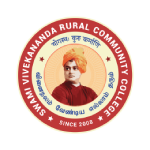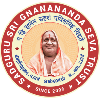Skin Care and Grooming
Course Objectives
While studying the Skin Care and Grooming, the student shall be able to:
- Understand the anatomy and the basic skin types of the Human
- Describe the equipment and tools used for Skin Care
- Explain the steps of giving massage during facial
- Demonstrate the manicure and pedicure procedures
Course Outcomes
After completion of the Course Skin Care and Grooming, the student will be able to:
- State the types of skin of human
- Select the type of make-up accessories for various types of skin and situation
- Perform eye and lip make-up including corrections
- Demonstrate various types of Facials and massaging manipulations
Block- 1: Human Body Anatomy and Structure of Skin
Unit-1: Anatomy and Physiology of Human Body
Systems of the Body-Bones of the Head and Neck -Muscles of the Head and Neck -Blood Vessels of the Head and Neck -Nerves of the Head, Face and Neck- Sanitation- Bacteria- Fungi- Viruses- Professional Hygiene
Unit-2: Skin and its Structure
Structure of the Skin-Sweat Glands and the Oil Glands – Hair Follicle and Erector Pili- Skin Types-Cosmetology- Making a Professional Judgment- Healthy and Beautiful Skin – Environment and Skin Beauty -Biological Influences on the Skin -Anatomy of Acne
Unit-3: Histology of Skin
Layers of Skin – Functions of Skin – Skin Disorders- Chemistry Needed for Aesthetician’s- Electrical Gadgets Normally Used in Beauty Centres- Herbs and Natural Products Often Used -Electrical Machines & Apparatus used for Skin Care- Steam Bath
Block -2:Make-Up and Cosmetic Materials
Unit-4: Cosmetic Materials
Basic Beauty Wardrobe- Makeup and its contents- Colouring Agents- Effect of Artificial Lighting on Makeup- Implements and Materials Used- Corrective Makeup- Stage TV and Film Makeup- Difference between Stage, Film and TV Makeup- Factors to be considered while doing TV and Film Makeup- Makeup Kit
Unit-5: Eye Make-up and Hair Removal
The Structure of the Eye-Eye Treatments-Special Eye Exercises-Eye Brow Shaping- Superfluous Hair- Methods for Removal- Methods used on different Parts of the Body
Block- 3: Pedicure, Manicure and Electrotherapy
Unit-6: Manicure and Pedicure
Manicurist- Nails- Manicure- Special Manicure- Type of Services- Pedicure- Common Foot Problems- Pedicuring- Equipments Required- Procedure- Precautions
Unit-7: Electrotherapy
High Frequency- Hood Drier- Galvanic Current- Ozone Unit- Ringlets- Hot Rollers-Roller Setting- Ear and Nose Piercing
Block -4: Massage and Facials
Unit-8: Introduction to Massage
Massage – Types of Massage – General Effects of Massage – Draping for a Facial- Facial Massage – Commonly used Manipulations- Cleansing of the Skin – Steaming of the Face- Methods of Steaming
Unit-9: Massage Therapy and Facials
Types of Massage Movements- Swedish Massage- Aroma Therapy Massage-Facial- Advantage of Facial- Facial Massage Stroke- Facial Treatment
Hair Care and Styling
Course Objectives
While studying Hair Care and Styling, the student shall be able to:
- Learn about the structure and types of Hair
- Describe about scalp manipulation and hair rinsing process
- Explain the procedure for various thermal hair styling like roll, straightening preming
- Gain knowledge about hair colouring and the process
Course Outcomes
After completion of the Course Hair Care and Styling, the student will be able to:
- Explain the hair growth rate and hair damages
- Demonstrate the hair shampooing techniques
- Handle various types of hair colouring and dyeing materials and perform the hair colouring
- Perform different types of hair cut like bob, straight cut etc.
Block -1: Hair and Hair Rinsing
Unit-1: Study of Hair
Introduction-Structure of the Hair-Growth Rate of Hair-Types of Hair-Characteristics of the hair shaft-Biological Effects upon Hair-Diseases and disorders of the Hair and Scalp- Practices that Damage Hair-Analyse Hair and Scalp-Scalp Manipulations
Unit-2: Hair Rinsing
Shampooing-Different Types of Shampoos-The Choice of a Shampoo-Shampooing Clients Hair
Block -2: Hair Styling and Colouring
Unit-3: Thermal Hair Styling
Methods of Hair Designing-Thermal Air Styling – Blow Drying-Hot Rollers-Curly Hair Style-Curling Irons-Thermal Relaxing Techniques-Straightening-Hair Perming
Unit-4: Hair Colouring
Hair Colouring-Basic Principles of Colour-Classification of the Hair Colour-Hair Colour Record-Henna treatment-Herbal Hair Dye-Fancy Hair Colouring-Highlighting- Lighteners and Their Effects-Toners (Two-step tints)
Block- 3:Hair Treatments and Bob Cut
Unit-5: Hair Treatment
Hair Treatment-Scalp Treatment-Hot Oil Massage-Henna Conditioning-Protein Conditioning-Split Ends Remedy
Unit-6: Hair Cut – Bob
Step By Step Procedure-The Finish Procedure-Finished Look
Block- 4:Other Types Of Hair Cuts
Unit-7: Forward Graduation Cut
Step by Step Procedures-The Cut-The Finish-Finish Look
Unit-8: One Length Cut
Step by Step Procedures-The Cut-The Finish-The Finished Look
Entrepreneurship Development
Course Objectives
While studying Entrepreneurship Development, the student shall be able to:
- Explain about Entrepreneurs and characteristics of them
- Describe the Parlour maintenance and client handling
- Explain the creation and submission of Project Proposal
- Aware of institutional support and financial avenues available for entrepreneurs
Course Outcomes
After completion of the Course Entrepreneurship Development, the student will be able to:
- Plan about the setting of a saloon/ parlour
- Devise a Project Proposal for want of fund/ loan
- List the ways of handling the customer and hygiene management of parlour
Block-1: Entrepreneurship and Beauty Profession
Unit-1 – Entrepreneurship
Definition and Meaning of Entrepreneur- Characteristics of Entrepreneur – Functions of Entrepreneur- Classification of Entrepreneurs-Role and Importance of Entrepreneurship- Evolution of Indian Entrepreneurship- Women Entrepreneurs
Unit-2: Beauty Profession – Ethics and Qualities
Beauty Profession- Professional Ethics in Salon- Client/Customer Relationship in Beauty Parlour- Physical presentation of beauty salon professional-Qualities of Beauty professional- Opportunities and Progression in Beauty Profession
Block- 2: Saloon Planning and Management
Unit-3: Client Consultation and Understanding
Client consultation- Consultation Steps and Techniques- Client consultation Tool- Understand Your Client Types
Unit-4: Beauty Salon Planning and Management
Beauty Salon – Beauty Salon Business Planning- Managing Steps for Beauty Salon- Planning for beauty salon lay out – Selection of tools and equipment- Recommendation for Professional Beauty Products
Block -3: Creation of Project and Starting a Small Scale Enterprise
Unit-5: Project Identification
Meaning of Project- Characteristics of a Project- Classification of a Project- Project Objectives- Project Selection- Stages in the process of Project or Project Life Cycle- Project Appraisal- Financial Criteria- Project Report – Characteristics of a Successful Business Plan- Financial Analysis- Cash Flow Analysis- Budgets and Budgetary Control
Unit-6: Steps for Starting a Small Scale Enterprise
Introduction to Small Scale Industries- Setting-up a Small-Scale Unit – Problems related to Small-Scale Industries- Measures for improvement- Government policies and measures to improve Small-Scale Industries- List of items reserved for Small- Scale Industries – Role of Small-Scale Industries in the Indian Economy – Incentives and Subsidies offered to Small Scale Industries- Subsidies and Incentives in Tamilnadu- Small Industries Development Bank of India- Sole trader / Sole proprietorship- Partnership- Joint Stock Company
Block -4: Institutional Finance and Support to Entrepreneurs
Unit-7: Institutional Finance and Entrepreneurs
Introduction to Entrepreneurial Development Programme (EDP) – Role of Government and Non-Government, National, State and District level Institutions to assist EDPs- Financial Institutions- Other Financial Intuitions-Jawahar Rozgar Yojana Scheme (JRY)
Unit-8: Institutional Support to Entrepreneurs
Role of Government and Non-Government institutions-National Small Industries Corporation (NSIC)-Small Industries Development Organization (SIDO) – District Industries Centres(DIC)-Technical Consultancy Organizations(TCO)- The Tamil Nadu Industrial Investment Corporation Ltd(TIIC)- Khadi and Village Industries Commission(KVIC)- Industrial Estates-Industrial and Technical Consultancy Organization Of Tamil Nadu(ITCOT)-State Industrial Promotion Corporation of Tamil Nadu Limited (SIPCOT)-Total Quality Management (TQM)-International Standards Organization (ISO)- Other institute support to the entrepreneur- Small Scale Industries Policy-Rural Entrepreneurship
Skin Care (Practical)
- Handling of equipments used for skin care
- Skin testing
- Mini facial
- Herbal facial
- Galvanic facial
- Aroma facial
- Biotech facial
- Pearl facial
- Fruit facial
- Vegetable facial
- Eye brow trimming
- Pimple treatment
- Bleaching
- Powder bleach
- Detanning
- Pedicure
- Manicure
Hair care, Make-up and Mehandi
- Handling of hair care equipments
- Hot oil massage
- Henna Hair conditioning
- Dandruff treatment
- Hair dyeing
- Coloring
- Straightening
- Different Styles of Haircuts – 5
- Types of hair styles – 5
- Art of Mehandhi
- Party makeup
- Bridal Makeup

